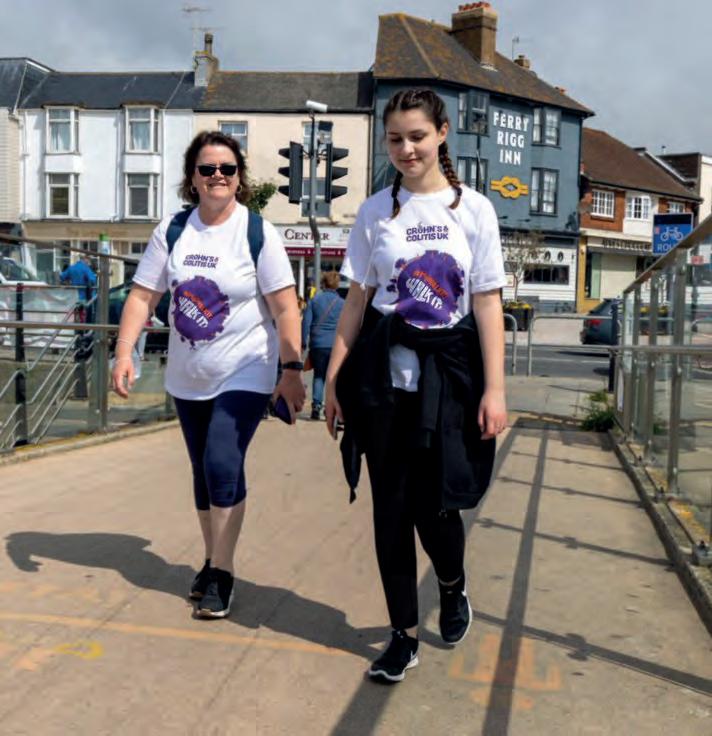
2 minute read
Go with the flow
from Connect Magazine
Being
Our virtual fundraising event, My WALK IT, returns in June. It gives people the chance to raise funds and awareness, with the flexibility to make the event their own.
Going at your own pace means you enjoy yourself and are likely to stick to what you are doing for a longer time. It’s also helpful for people dealing with what has been described as the “most over-reported and undermanaged” problem for those living with debilitating medical conditions – fatigue.
When you live with Crohn’s or Colitis, fatigue may be caused by many different things. This means there are various approaches you and your healthcare team can try to help control your fatigue. It may sound surprising, but physical activity is one tool that can help.
One study found that people with Crohn’s and Colitis who exercise, even just a little bit during the week, feel less tired than those who do not exercise at all.
A research study we funded showed that high-intensity interval training (HIIT) or moderate-intensity continuous training (MICT) didn’t worsen symptoms in people with Crohn’s. At the end of the exercise sessions, people with Crohn’s said they felt “fairly good”.
They experienced a range of health benefits after starting the exercise programmes, including improved fitness, feeling more energised, increased motivation to exercise and a reduction in anxiety.
Managing activity and fatigue
• If you find the idea of exercise daunting, try incorporating some mild activity into your daily routine. Walk to the shops if you can, use the stairs instead of the lift or try a bit of gardening. Just getting out of the house into the fresh air can help you feel more positive.

• To help build up your confidence, plan your route in advance if you are worried about needing a toilet urgently.
• Some people find that exercises such as deep breathing, deep muscle relaxation, meditation or yoga help them feel more able to cope with the daily stresses of living with Crohn’s or Colitis.
• Fatigue, like other symptoms of Crohn’s and Colitis, can come and go. Be kind to yourself. Knowing when to stop and take a rest can be difficult, but important.
Benefits Of Activity
Exercise releases endorphins, the ‘happy hormones’. Some research has shown that moderate cardio and resistance exercise may help with reducing disease activity and symptoms such as constipation, although more research needs to be done to be conclusive.
There will likely be times when you are less well, or too anxious about needing a toilet urgently, to take part in exercise. While even light activity can make some people want to open their bowels, taking exercise itself will not worsen your Crohn’s or Colitis. It’s essential to get enough rest, but doing physical exercise when you can will help maintain muscle and bone condition.
Go
•For more on managing fatigue, visit: crohnsandcolitis.org.uk/fatigue
•The NHS website has many free resources about exercise, particularly if you are not sure how to start. For more information visit: nhs.uk
Sign up for My WALK IT for free: crohnsandcolitis.org.uk/challenges/ my-walk-it

Getting Going
If you want to follow a structured exercise programme, take advice from your doctor and ask an exercise instructor to plan a programme tailored to your needs. You could also think about exercising at a gym, sports club or other indoor centre with toilet facilities. If you want to keep up an activity, but aren’t sure if you should carry on, speak to your healthcare team and rely on how well you feel at the time.
It’s important to understand how your energy is affected by your condition and be realistic about what you can achieve. People living with Crohn’s or Colitis can feel guilty, or that they are making a fuss over nothing, if they need to rest or cancel plans. Remember that you are living with an ongoing and challenging illness. There may be times when you feel low, anxious and tired. When this happens, take care of yourself and rest as much as you need.










